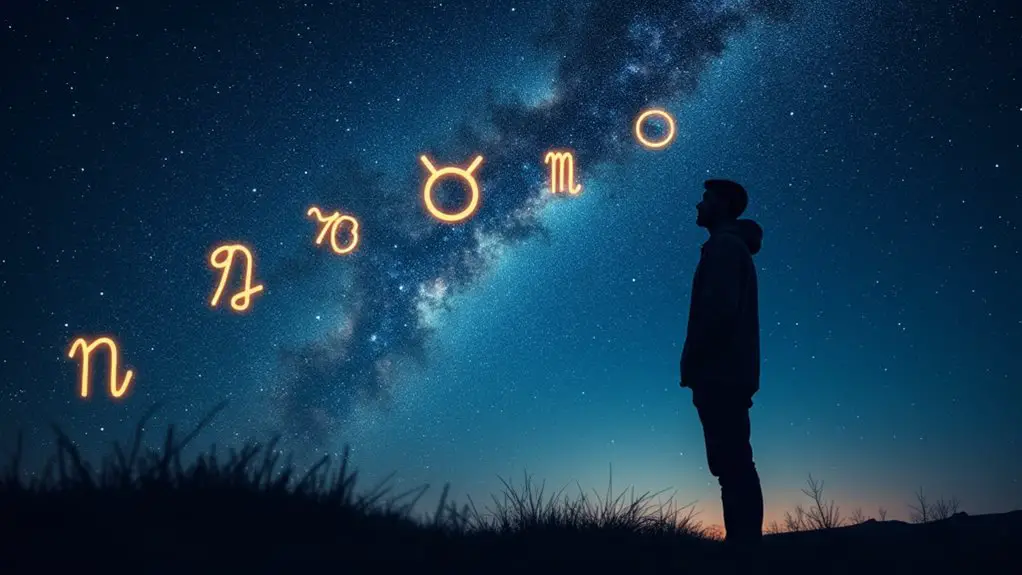As the saying goes, ‘The stars align for a reason.’ Astrology, the ancient practice of studying celestial bodies to gain insight into human behavior and the course of events, has captivated minds for centuries. But, is astrology really accurate? Can the position of the planets truly determine your fate? In this article, we delve into the depths of astrology to uncover the truth.
From its origins in ancient civilizations to the modern interpretations of zodiac signs, astrology has fascinated and perplexed skeptics and believers alike. We explore the methods and techniques employed by astrologers, as well as the role of planetary alignments in shaping our lives. Moreover, we delve into the intriguing connection between astrology and personalities, questioning whether there is indeed a correlation.
However, skepticism and criticism have surrounded astrology for years. We address these concerns and shed light on the debate surrounding its accuracy. Additionally, we examine how astrology impacts decision-making and share personal experiences that have shaped beliefs.
Join us on this journey as we navigate the depths of astrology, exploring its accuracy, its limitations, and the evolving beliefs and practices that shape its future. Whether you seek understanding, validation, or simply a new perspective, this article will provide insights into the fascinating world of astrology and its relevance in our lives.
Key Takeaways
- The accuracy of astrology and whether the position of planets can determine fate is questioned.
- Skepticism and criticism surround astrology due to its lack of scientific evidence and reliance on celestial bodies.
- Astrology provides insights and guidance, but cannot predict specific events with certainty.
- Personal experiences with astrology add weight to its validity and usefulness.
The Origins of Astrology
Do you ever wonder where astrology actually comes from? Well, astrology has its roots in ancient beliefs. It was seen as a guiding force in people’s lives. Ancient civilizations believed that the positions of celestial bodies could provide valuable insights into human behavior and the course of events.
This belief in the power of astrology has persisted throughout history and has had a significant cultural impact. Astrology has influenced art and literature, shaping the way people perceive the world and themselves. From ancient cave paintings to Shakespearean sonnets, astrology has been a source of inspiration for countless artists and writers. Its influence can be seen in the symbolism and themes found in various artistic mediums.
So, while astrology may not be scientifically accurate, its cultural significance cannot be denied.

The Zodiac Signs and Their Meanings
The zodiac signs are like personality roadmaps, guiding us through the twists and turns of life. Each sign carries its own unique symbolism, representing different aspects of human nature and character traits.
Aries, for example, is known for its boldness and determination, while Taurus is associated with stability and practicality. These signs not only help us understand ourselves better but also provide insights into our relationships with others.
Astrological compatibility is often determined by the compatibility of the zodiac signs. Some signs naturally complement each other, while others may clash. Understanding the meanings behind each zodiac sign can help navigate and improve our relationships.
By considering the symbolism of the zodiac signs, we can gain a deeper understanding of ourselves and the people we interact with, fostering healthier and more fulfilling connections.
Astrological Methods and Techniques
Explore the transformative power of astrology and discover how it can guide you towards a more meaningful and fulfilling life.
Astrological predictions have been used for centuries to provide insights into various aspects of life such as relationships, career, and personal growth. While some may question the accuracy of horoscopes, it’s important to understand the methods and techniques used in astrology.
Astrologers analyze the positions of celestial bodies at the time of your birth to create a personalized horoscope. They study the intricate connections between these celestial bodies and interpret their influence on your life. While astrology can’t predict specific events with absolute certainty, it can provide valuable insights and guidance.
Understanding the possibilities and tendencies indicated by your horoscope can empower you to make informed decisions and navigate life’s challenges. So, while astrology may not be a crystal clear crystal ball, it can certainly be a useful tool in your journey towards self-discovery and personal growth.
The Role of Planetary Alignments
Planetary alignments can have a significant impact on our lives. Studies show that individuals born during a Full Moon are more likely to be creative and emotionally intuitive. These alignments, where celestial bodies align in specific positions, are believed by astrologers to influence various aspects of our lives, including our personality traits, relationships, and even major life events.
Here are four ways in which planetary alignments play a role in astrology and predictive accuracy:
- Natal charts: Astrologers create natal charts based on the positions of planets at the time of our birth. These charts provide insights into our strengths, weaknesses, and potential life paths.
- Transits: Planetary transits occur when planets move through different signs of the zodiac. Astrologers interpret these transits to predict significant life events and opportunities.
- Aspects: Planetary aspects refer to the geometric relationships between planets. These aspects can indicate compatibility, challenges, and potential areas of growth in relationships.
- Retrogrades: Planetary retrogrades occur when a planet appears to move backward in its orbit. Retrogrades are believed to influence areas of our lives where we may experience delays, introspection, and reevaluations.
Understanding the role of planetary alignments in astrology can help us appreciate the potential accuracy and insights it offers in predicting and understanding life events.
Astrology and Personalities: Is There a Connection?
There’s definitely a fascinating connection between astrology and personalities, isn’t there?
Many people believe that the alignment of the planets at the time of our birth can influence our character traits and shape our destinies. Some astrologers even claim that astrology can help us make better career choices and find compatible partners in romantic relationships.
When it comes to astrology and career choices, believers argue that understanding our astrological signs can provide insights into our strengths, weaknesses, and natural inclinations. For example, a fiery Aries may thrive in leadership roles, while a practical Virgo may excel in analytical professions. By aligning our career choices with our astrological characteristics, we may find greater fulfillment and success.
Similarly, astrology is often consulted when it comes to romantic relationships. Compatibility charts based on astrological signs can give us a glimpse of potential challenges and harmonies in a partnership. While it is important not to solely rely on astrology in matters of the heart, it can serve as a helpful tool for self-reflection and understanding in relationships.
Ultimately, whether or not astrology accurately predicts personalities is a matter of personal belief. While some find it to be a useful guide, others consider it mere entertainment. It’s up to each individual to decide if astrology holds true significance in their lives.
Debunking Astrological Claims
Now that we’ve explored the connection between astrology and personalities, let’s dive into debunking some of the claims that astrology makes. It’s important to approach astrology with a critical mindset, especially when it comes to its impact on relationships.
While astrology might suggest that certain signs are more compatible with each other, there is no scientific evidence to support these claims. Relationships are complex and multifaceted, influenced by a multitude of factors such as communication, values, and compatibility. Relying solely on astrology to determine the success or failure of a relationship is not only inaccurate but also unfair to the individuals involved.
It is essential to prioritize open and honest communication, understanding, and compromise in order to build healthy and thriving relationships, rather than placing undue importance on astrological compatibility.
The Influence of Astrology in History and Culture
Explore how astrology has shaped history and culture, captivating people’s imaginations and influencing everything from ancient civilizations to modern-day beliefs.
Astrology’s influence on art, literature, and music is undeniable. Throughout history, artists, writers, and musicians have drawn inspiration from astrological symbols and themes, infusing their work with a sense of cosmic wonder. From the zodiac signs depicted in Renaissance paintings to the celestial references in Shakespearean plays, astrology has left its mark on the creative world.
But astrology’s impact extends beyond the realm of art. It has also had a significant influence on relationships and compatibility. Many people turn to astrology to gain insights into their personality traits and to understand their interactions with others. Whether it’s seeking compatibility through horoscope matching or using astrology to navigate the complexities of relationships, astrology has become a tool for understanding and connecting with others on a deeper level.
Astrology’s influence on history and culture cannot be ignored. From its impact on art, literature, and music to its role in relationships and compatibility, astrology continues to captivate and shape our world. Whether you believe in its accuracy or not, astrology has undeniably left an indelible mark on human civilization.
Scientific Studies on Astrology
Scientific studies have delved into the validity of astrological claims, examining the correlation between celestial movements and individual traits to provide a more empirical understanding of this ancient practice.
While astrology has been around for centuries, its accuracy has always been a subject of debate. Researchers have conducted numerous studies to determine if there is any scientific evidence to support astrological claims. Through statistical analysis, they have examined the relationship between astrological predictions and actual outcomes. However, the results have been largely inconclusive.
Many studies have failed to find any significant correlation between celestial movements and individual traits. Critics argue that astrology relies on general statements that can apply to anyone, making it difficult to validate its accuracy.
Despite the lack of scientific evidence, astrology continues to be popular among many who seek guidance and insight into their lives.
Skepticism and Criticism of Astrology
You may have heard skeptics and critics questioning the validity of astrology, citing its lack of scientific evidence and accuracy. Skepticism versus belief is a common debate when it comes to astrology.
Critics argue that astrology is based on vague and general statements that can apply to anyone, making it seem accurate. They also point out that astrology fails to meet the standards of scientific research, lacking empirical evidence. Moreover, astrology’s reliance on celestial bodies and their positions raises questions about its compatibility with scientific principles. Some critics even compare astrology to religion, arguing that both are based on faith rather than concrete evidence.
However, believers in astrology argue that it offers insights and guidance that cannot be explained solely through science. They see astrology as a tool for self-reflection and understanding, rather than a predictive science.
Ultimately, whether you believe in astrology or not is a personal choice, influenced by your own experiences and perspective.
Astrology and Decision Making
Now that we’ve explored the skepticism and criticism surrounding astrology, let’s delve into the intriguing realm of astrology and decision-making.
Astrology can influence various aspects of our lives, including career choices and relationship compatibility. Many people consult their birth charts and horoscopes to gain insights into their strengths, weaknesses, and potential career paths. Astrology can provide guidance by highlighting personality traits and identifying suitable professions that align with an individual’s unique characteristics.
Additionally, astrological compatibility is a widely discussed topic when it comes to relationships. By comparing birth charts, astrology enthusiasts believe they can determine the compatibility between two individuals, helping them make informed decisions about their romantic partnerships.
While astrology should not be the sole determining factor, it can offer valuable insights and considerations when making important life decisions.
Personal Experiences with Astrology
Imagine how fascinating it would be to hear personal stories and anecdotes from individuals who’ve had meaningful experiences with astrology. Many people claim that astrology has provided them with accurate insights and predictions about their lives. They believe that horoscope predictions have been validated through real-life events and experiences.
For example, individuals have found that the traits and characteristics of their zodiac sign align with their personality and behavior. Moreover, astrology has been used to assess compatibility in relationships, providing guidance on potential challenges and strengths between partners.
These personal experiences add weight to the validity of astrology and its ability to provide meaningful insights. While skeptics may dismiss astrology as mere coincidence, those who’ve witnessed its accuracy in their own lives find it to be a valuable tool for self-reflection and understanding.

The Future of Astrology: Evolving Beliefs and Practices
The future of astrology is set to take off like a shooting star, with beliefs and practices evolving to meet the changing needs of believers.
In modern times, astrology has adapted to the demands of a fast-paced, technology-driven world. With the rise of social media and online platforms, astrology has become more accessible and widespread than ever before. Astrologers have embraced these advancements, using digital tools to analyze birth charts, provide personalized readings, and connect with a global audience.
Moreover, evolving beliefs have led to a shift in the perception of astrology from a purely predictive tool to a means of self-reflection and personal growth. Many now see astrology as a way to gain insight into their own strengths, weaknesses, and life purpose.
As astrology continues to evolve, it will likely become even more integrated into our daily lives, offering guidance and support in an increasingly complex world.
Frequently Asked Questions
How accurate is astrology in predicting future events?
Astrology’s accuracy in predicting future events is limited. While it can provide insight and guidance, it is important to acknowledge its limitations. Factors such as free will and external influences can impact the accuracy of astrology predictions.
Can astrology be used to determine compatibility in relationships?
Astrology can provide insights into relationship compatibility by analyzing the birth charts of individuals. By examining planetary positions and aspects, astrologers can gauge long-term success. Debunking popular astrology myths helps foster a better understanding.
What is the significance of the rising sign in astrology?
The rising sign, also known as the ascendant, plays a crucial role in astrology. It represents the way you present yourself to the world and helps understand your personality traits. By interpreting the rising sign in your natal chart, you can gain valuable insights into your behavior and how others perceive you.
Does astrology have any scientific basis?
Scientific evidence does not support astrology. Astrology is based on the belief that celestial movements influence human behavior, but there is no empirical evidence to validate this claim. However, astrology can be seen as a form of psychology, providing insight and self-reflection for some individuals.
Can astrology help in making important life decisions?
Astrology can offer insights into career choices and personal growth. By analyzing planetary positions and their influence on personality traits, astrology provides guidance and helps individuals make informed decisions about their future paths and personal development.
Conclusion
In conclusion, astrology can be a fascinating and entertaining way to explore and understand the complexities of human nature. While there’s no scientific evidence to support its accuracy, many individuals find personal meaning and guidance through astrological readings.
It’s important to approach astrology with a healthy dose of skepticism and critical thinking, recognizing that it’s ultimately a belief system rather than a proven science. However, whether you choose to believe in astrology or not, it can still provide insight and spark curiosity about the vast mysteries of the universe.



